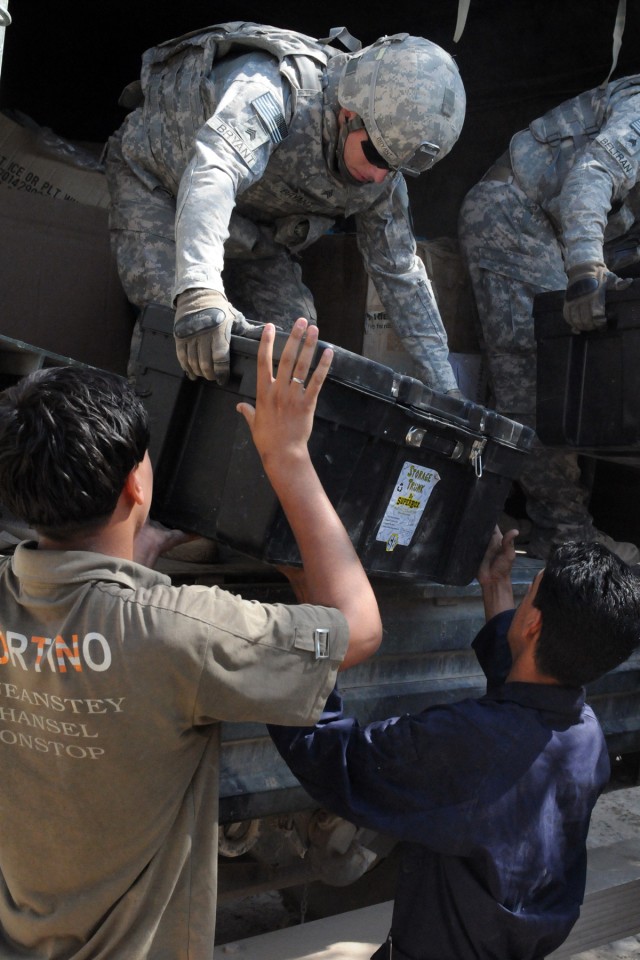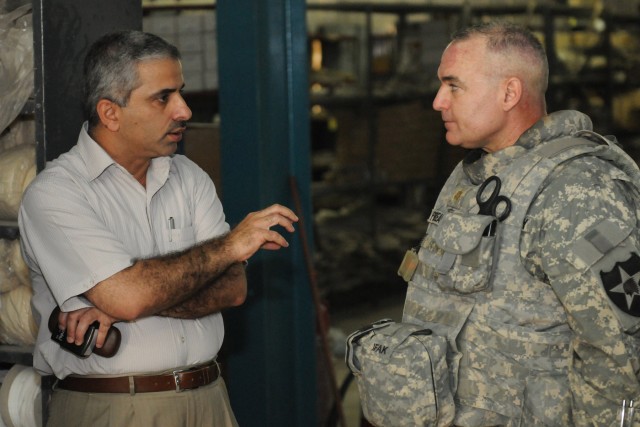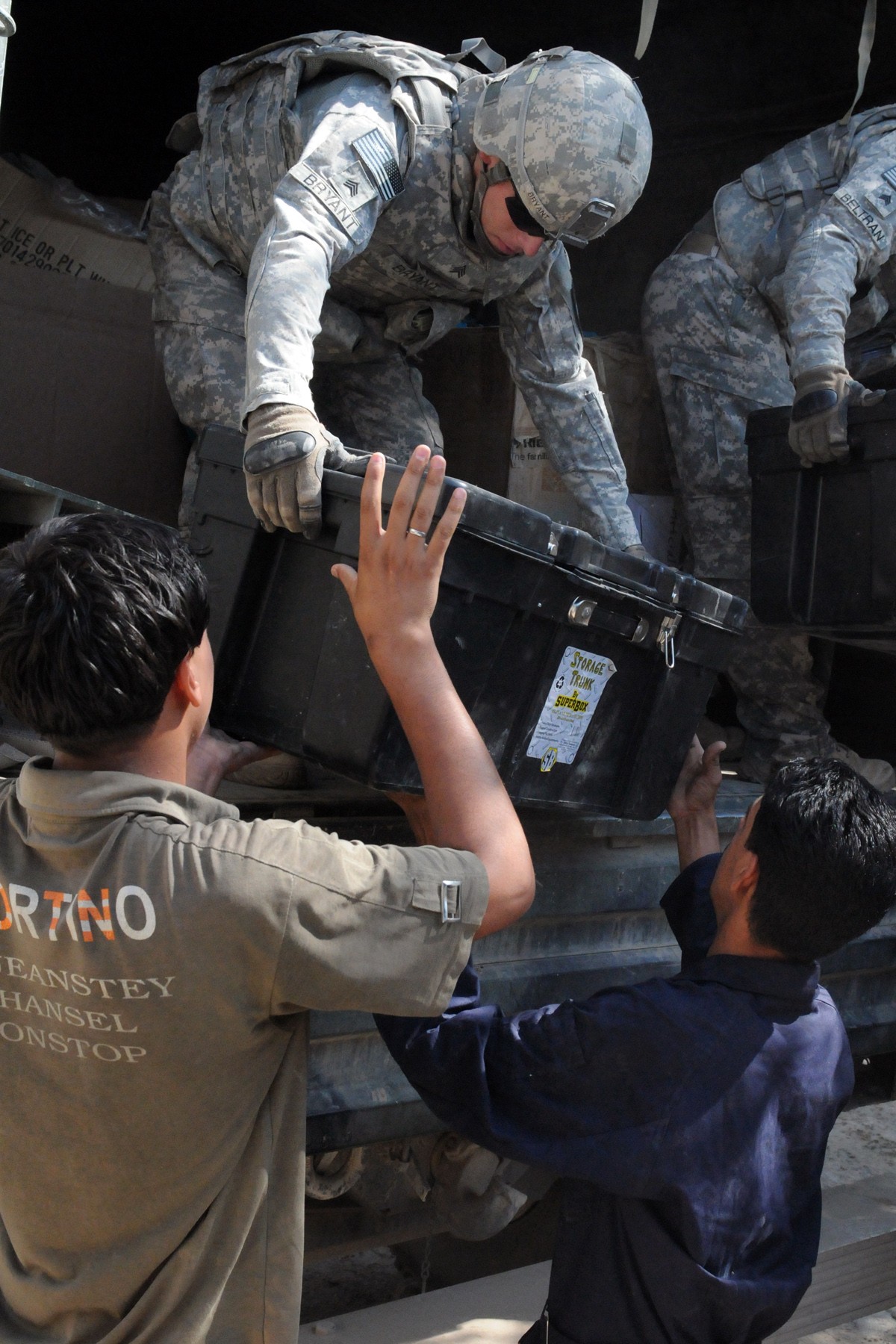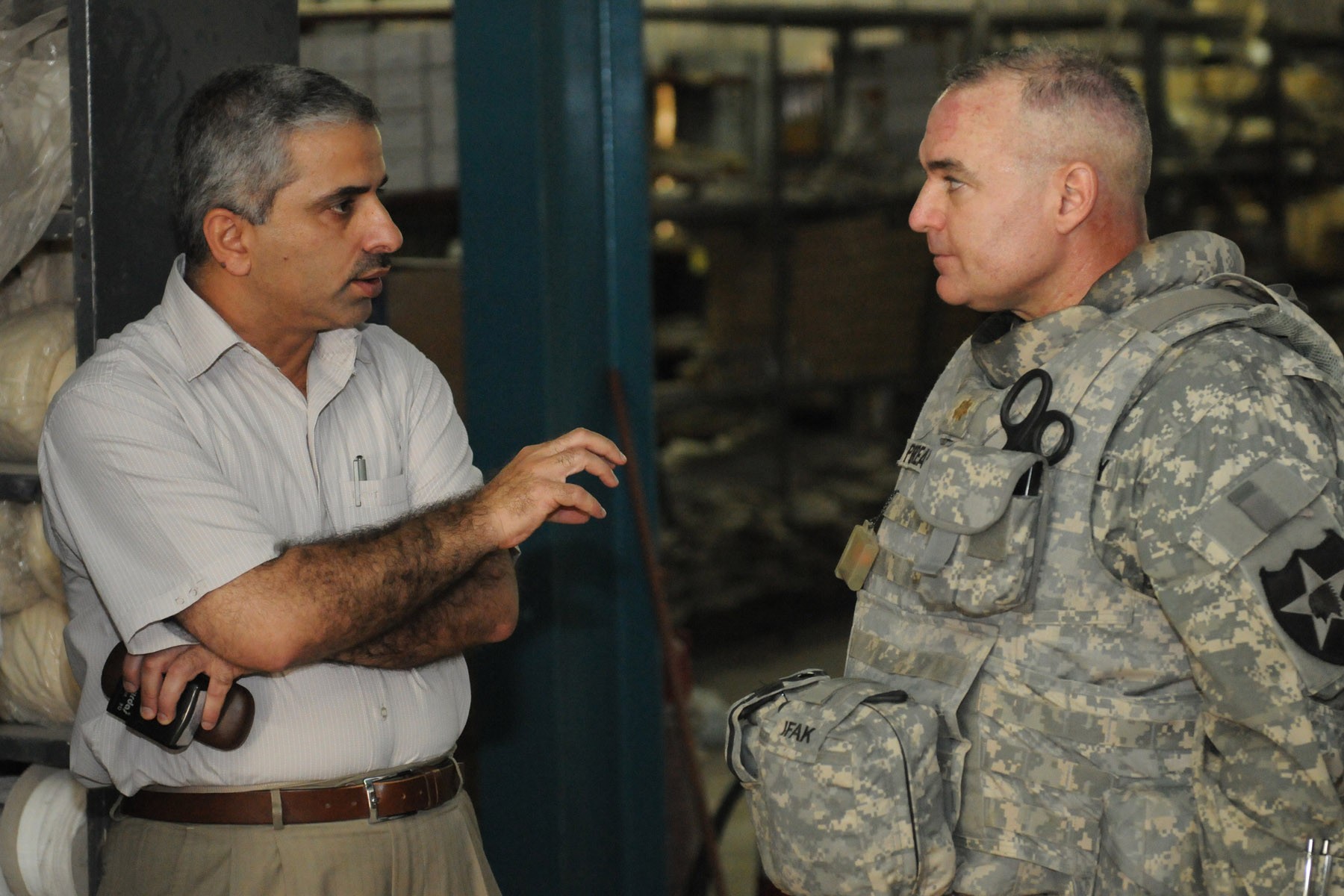BAGHDAD (Army News Service, July 22, 2010) -- Soldiers delivered boxes of prosthetic limbs July 19 to the Adamiyah Hospital, a rehabilitative hospital in the Baghdad area.
"We wanted to put these limbs to good use," said Capt. Gabriela Niess, the non-lethal planner for of 4th Stryker Brigade Combat Team and a native of Davis, Calif. "By giving these prosthetics to a location with capabilities to use them for the people of Iraq, we keep them from being wasted or sitting in a closet somewhere."
U.S. Soldiers from both 4th SBCT and 1st Advise and Assist Brigade, 3rd Infantry Division, have been working closely with hospitals in the area to determine which hospital was the best prospect to receive the prosthetic limbs, said Maj. Michael Perreault, brigade surgeon for 4th SBCT.
According to Perreault, Maj. Eric Aguila, squadron surgeon assigned to 2nd Cavalry Squadron, 1st Cavalry Regiment, 4th SBCT, visited Adamiyah Hospital during the past few weeks. In that time, Aguila brought examples of what was available to the hospital's prosthetic section and asked health-care providers if there would be a need for prosthetic arms and legs.
Through developing a partnership with the Adamiyah Hospital staff, the U.S. surgeons determined this hospital would be a prime location to ensure the prosthetics would be put to good use.
"We determined that this hospital was the most capable to help the most Iraqi people using these products," said Niess.
"This product drop gives the hospital more supplies and assets that they can use to better support the people of Iraq," Perreault added. "The doctors and patients all seemed excited and happy with the new equipment."
Perreault said he hopes some Iraqis might have the opportunity to lead a more normal life thanks to this donation provided by U.S. forces.
"This rehabilitation hospital serves about 400 patients a day in everything from physical therapy to prosthetic limb fitting," said Perrault. "These prosthetics can help some of those patients walk again."




Social Sharing